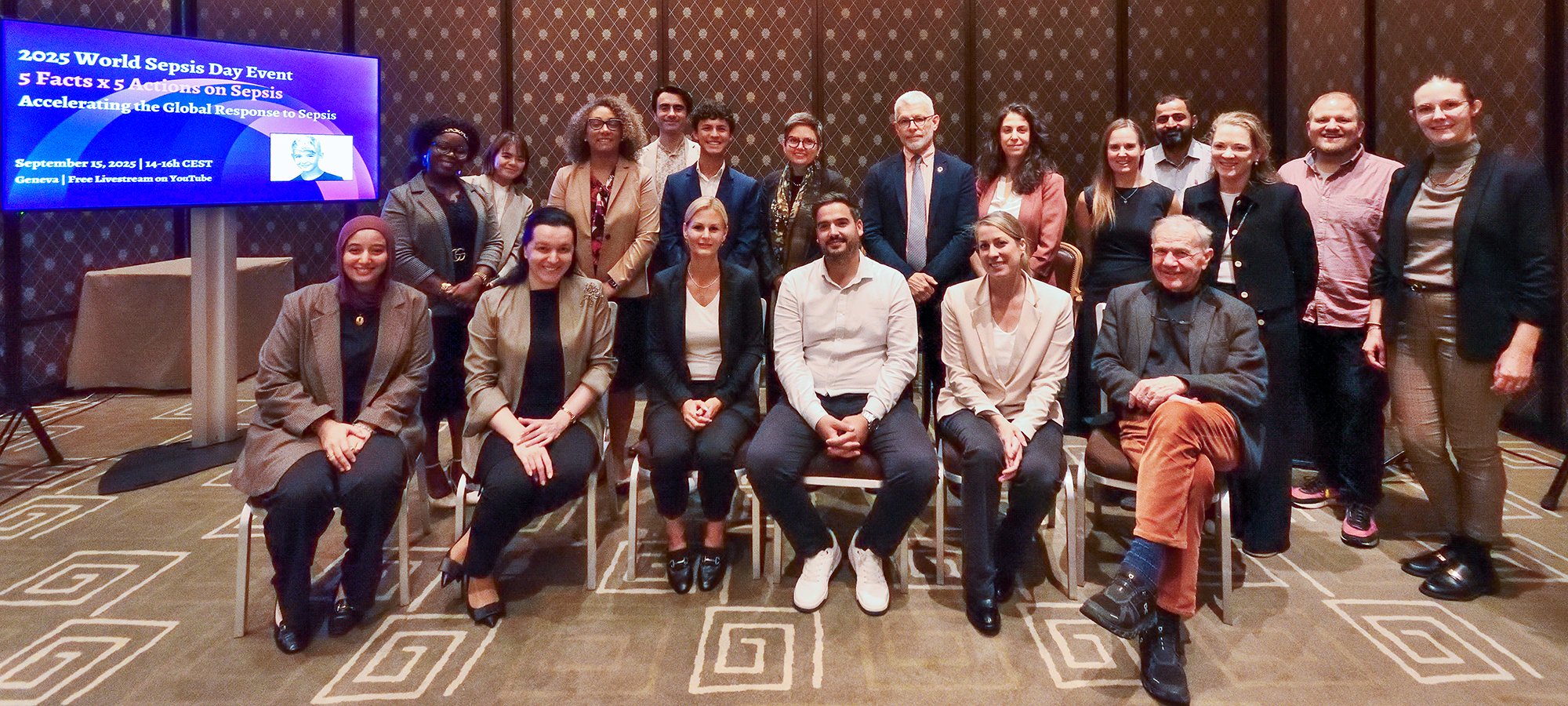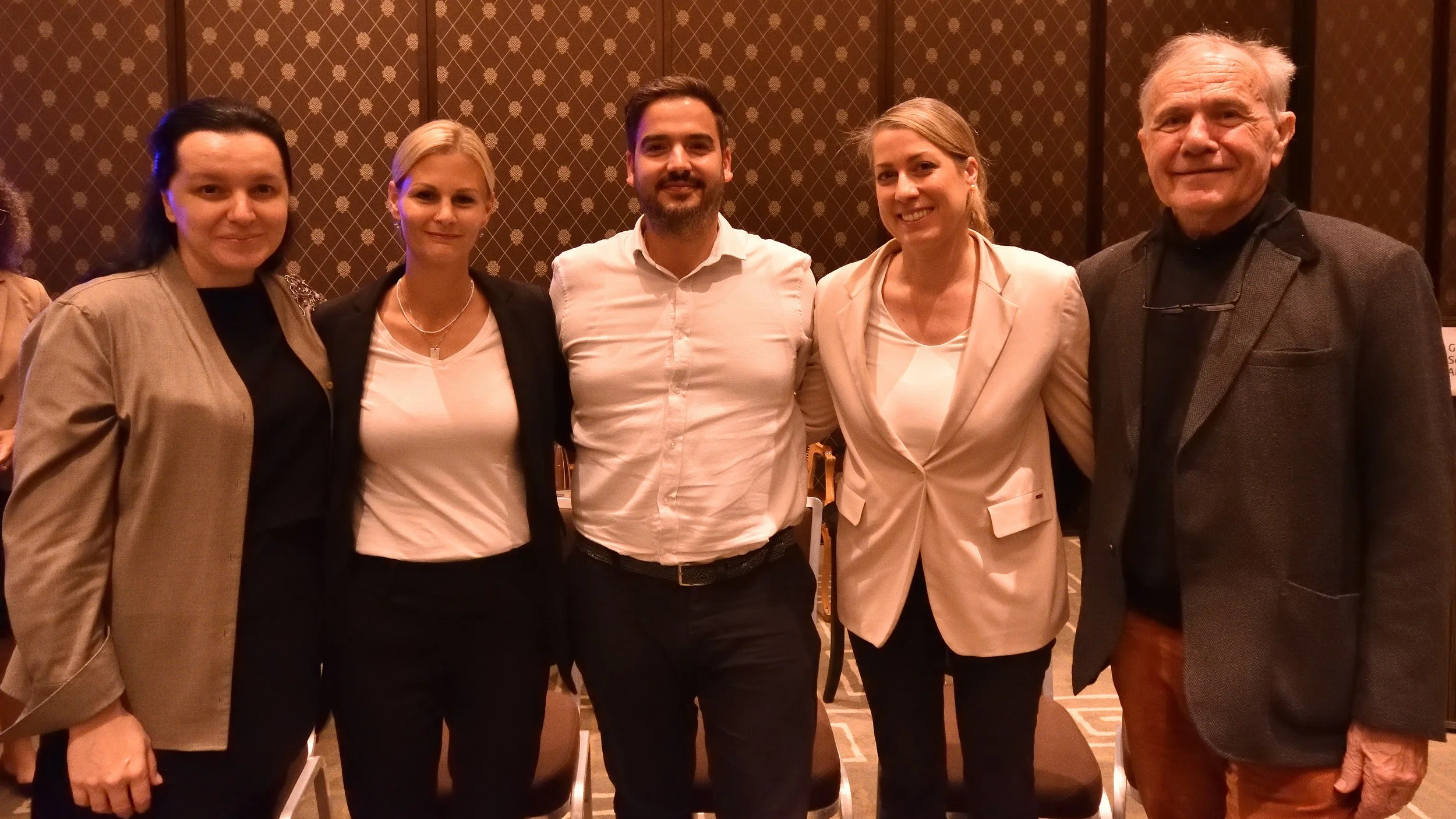On 24 September, as part of the 80th United Nations General Assembly, the GSA convened a high-level parallel side event titled “Sepsis and NCDs – A Hidden Link in Global Health” to highlight the overlooked intersection between infectious and chronic diseases and to call for political leadership and coordinated global action.
Opening the event, Ciaran Staunton, Founder of END SEPSIS – The Legacy of Rory Staunton and member of the GSA Board, welcomed delegates and emphasized that “most sepsis deaths are preventable” and that “sepsis remains the largest killer of children worldwide.”
Hon. Dr. Mariam Jashi, CEO of the Global Sepsis Alliance, former Chair of the Parliamentary Health Committee and Deputy Minister of Health of Georgia, underscored the urgency of implementing the 2030 Global Agenda for Sepsis, launched last year in the German Parliament. “By implementing this strategy, we can save two million lives every year,” she said, adding that “sepsis deserves to be at the center of the global political agenda and become the next success story in global health.”
In a video address, Dr. Tedros Adhanom Ghebreyesus, WHO Director-General, reaffirmed WHO’s commitment to strengthening sepsis prevention and care: “WHO is working with countries to reduce the impact of sepsis through guidelines on infection prevention, bloodstream infection control, and new clinical management tools. Nobody should die while seeking care.”
H.E. Dr. Hanan Al Kuwari, Advisor to the Prime Minister for Public Health Affairs and former Minister of Public Health of Qatar, shared her country’s experience, describing Qatar’s system-wide approach that cut sepsis mortality by 50%: “Leadership matters. Integration works. Data drives improvement,” she said. “Sepsis prevention and management must be embedded within NCD programs and health-system strengthening efforts.”
Representing the Government of Georgia, H.E. Mikheil Sarjveladze, Minister of Health, Labour and Social Affairs, emphasized the bidirectional link between sepsis and chronic conditions: “We cannot reduce premature mortality from NCDs without addressing sepsis,” he stated, reaffirming Georgia’s commitment to “integrating sepsis prevention, early detection, and treatment into our broader NCD strategies and universal health coverage reforms.”
Hon. Alan Donnelly, Chair and Founder of the G20 & G7 Health and Development Partnership, and Guilherme Duarte, Executive Director of the UNITE Parliamentarians Network for Global Health stressed the need for stronger political will and parliamentary engagement to ensure sepsis is recognized as a cross-cutting global health and development priority.
Prof. Niranjan ‘Tex’ Kissoon, President of the GSA, reminded participants of the progress since the 2017 WHA Resolution on Sepsis, noting that “the movement has grown from a few advocates to a global coalition driving measurable change.”
The event also featured powerful contributions from global health experts and advocates, including:
Prof. Christopher J. L. Murray, Founding Director of the Institute for Health Metrics and Evaluation (IHME), who presented updated Global Burden of Disease estimates on sepsis and its connection with AMR and NCDs. the IHME estimates report more than 21 million of sepsis cases worldwide, which represent 31.5% of total deaths.
Dr. Eleanor Nwadinobi, President of the Medical Women’s International Association (MWIA), who highlighted the gender dimension: “Women suffer disproportionately from sepsis – and yet women-led health innovations receive less than 10% of venture funding. We must move from rhetoric to action.”
Dr. Connie Newman, MWIA Vice President, who called for “gender-sensitive approaches to sepsis care and research.”
Mariah McKimbrough, sepsis survivor and Executive Director of the German Sepsis Foundation (Sepsis Stiftung), who shared her personal journey through 60 surgeries and two transplants: “Our mission must go beyond prevention. We must invest in survivor care and rehabilitation so no one is left behind.”
Jacqueline Duda, journalist and sepsis survivor, who reminded the audience that “awareness begins with stories – and survivors are the storytellers who bring sepsis out of the shadows.”
In her closing remarks, Dr. Jashi thanked participants and the event’s partners and called for broader collaboration: “Every three seconds, a person dies from sepsis. Together, we can change this. By integrating sepsis into NCD and UHC frameworks, we can save millions of lives and make sepsis the next global health success story.”







































